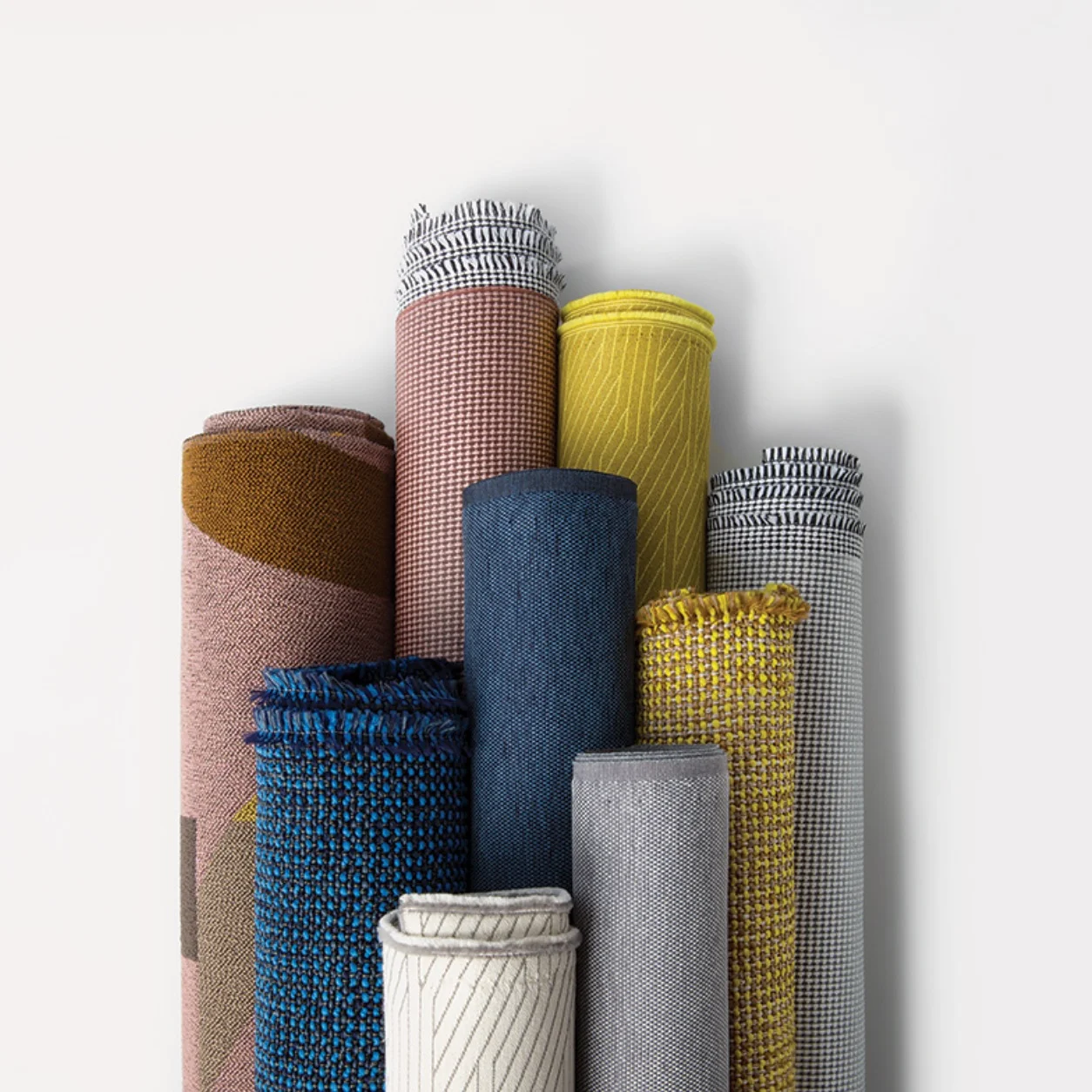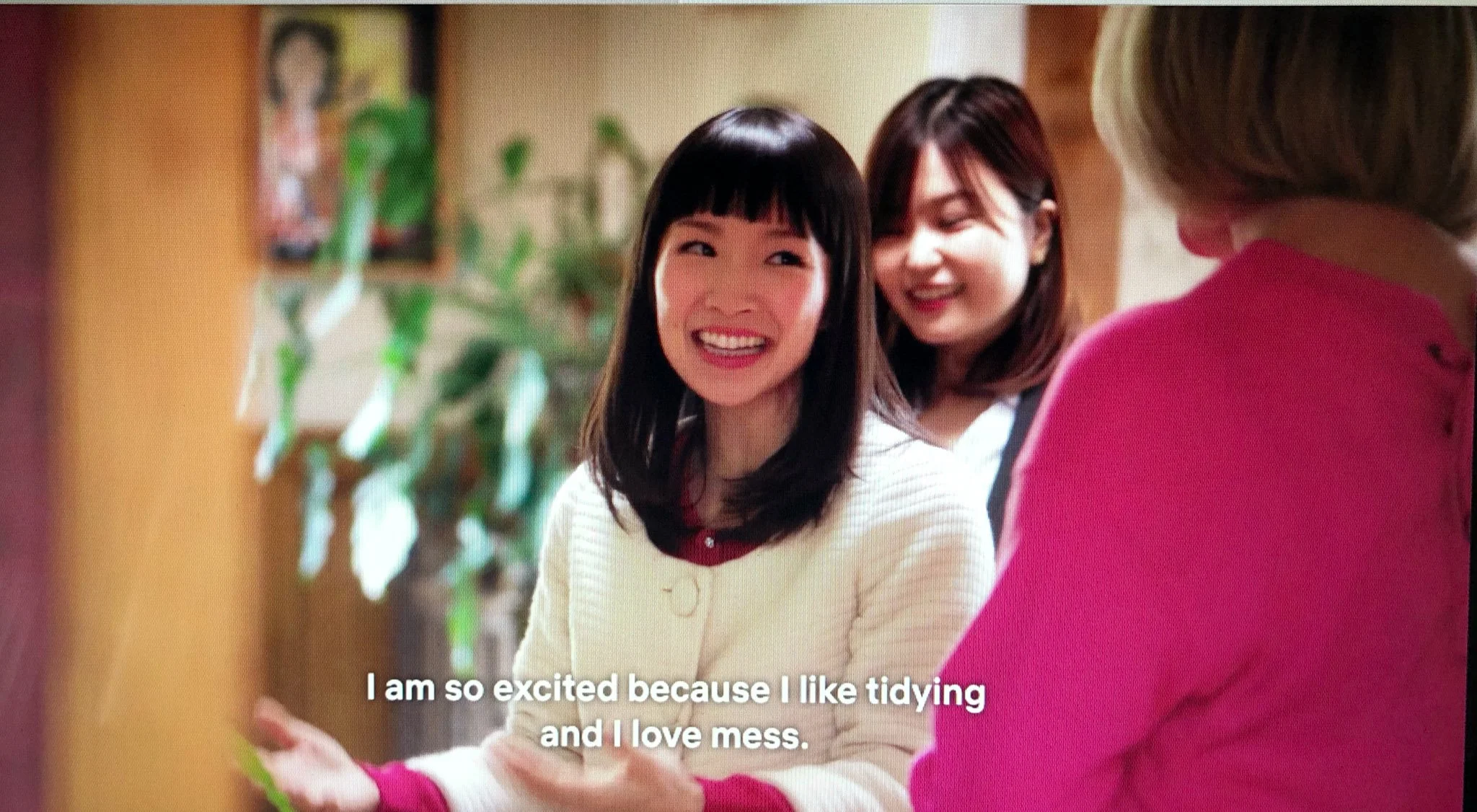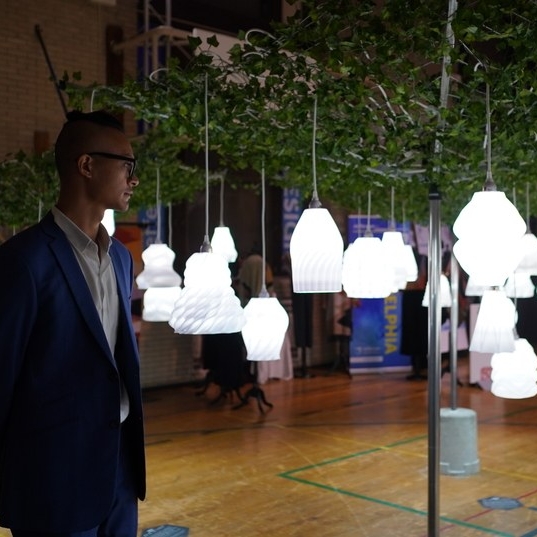Since the “Big Three” networks and basic cable gave way to streaming services, TV viewers have had access to a dizzying variety of on-demand offerings in increasingly specific genres. As a result, we’ve drifted further and further away from the shared viewing experiences of previous generations, like the Season 3 Dallas cliffhanger in 1980 that left millions of viewers asking “Who shot J.R.?” all summer.
Read MoreWhen Sonya Clark and the team at the Philadelphia’s Fabric Workshop and Museum were putting the final touches on the installation of her exhibition “Monumental Cloth, The Flag We Should Know,” it became clear that the gallery space – which houses an array of works made from subdued white textiles – needed a bit of vivid color.
Read MoreArtist and textile designer Suzanne Tick, founder of Tick Studio, tries to focus on the present. Each day, her staffers meditate together in the office, which is housed in an East Village town house where Tick also lives. The meditation is a prelude to conversation, she explains: “We clear our minds and then…have a thoughtful discussion of what’s happening in culture, art, and architecture.”
Read MoreVisitors to Marc Newson’s lavish design exhibition at Gagosian Gallery on West 21st Street could have been forgiven for wondering if they’d been transported back to the 18th century — albeit an oddly minimalist version of the age of Rococo. That’s not because of the deluxe surfboards that were on view, though these works were transporting in their sleekness and vivid colours.
Read MoreWe often think of apartment kitchens as problems to be solved. They’re likely to be short on counter space, storage, and light, or they’re stubbornly out of step with trends in interior design. As renters, we may try to spruce them up with extra shelves and unusual drawer pulls.
Read MoreIn the summer of 1898, the Scottish chemist Sir William Ramsay made a discovery that would eventually give the Moulin Rouge in Paris, the Las Vegas Strip, and New York’s Times Square their perpetual nighttime glow. Using the boiling point of argon as a reference point, Ramsay and his colleague Morris W. Travers isolated three more noble gases and gave them evocative Greek names: neon, krypton, and xenon.
Read MoreWhere would you be most likely to go in search of exquisite handcrafted objects or clothing? If you live in North America or Europe, your first answer probably isn’t “the nearest department store.” The idea of Bloomingdale’s or Neiman Marcus selling handwoven baskets or lathe-turned wooden plates and bowls is about as implausible as it is thrilling.
Read MoreAbout halfway through “The Downsizers,” the third episode of the new Netflix series Tidying Up With Marie Kondo, the 11-year-old Kayci Mersier and her 12-year-old brother, Nolan, are sorting through gigantic piles of clothing, piece by piece. They bid a grateful farewell to the things they no longer wear, and let others—the ones that “spark joy”—know they will be happily worn in the future. “You’ve done so much good for me; I thank you for that,” Nolan tells a jacket, giving it a little hug before setting it down.
Read MoreStarting around Thanksgiving, one can hardly run an errand or ride an elevator without being serenaded by Christmas music. The songs cover familiar seasonal territory—silver bells, open sleighs, roasting chestnuts—as well as a timeless emotion: desire. Just think of Eartha Kitt flirting with “Santa Baby,” Mariah Carey donning a Santa hat to sing “All I Want for Christmas Is You,” or George Michael pining for a lost love in “Last Christmas,” by Wham! But all of those romantic lyrics about wanting and wishing also happen to tap into a different, but no less powerful desire: the urge to shop.
Read MoreIn the May 14, 1967, issue of the Philadelphia Inquirer, art critic Victoria Donohoe described the Museum of Merchandise— an art exhibition disguised as a department store, organized by the Arts Council of the local YMCA/YWHA— as having “sufficient vigor and originality to project itself beyond a local audience.” She added that “magazines and newspapers in other cities [had] given the art event advance coverage, probably because it is as restless and provocative a concept as anything seen in recent years.”
Read More“The stockings were hung by the chimney with care, and concentric circles of light and shadow danced in a modernist tableau, all over the ceiling.” Wait, what? If you’re accustomed to old-fashioned fragrant evergreen trees, sticky with sap and heavily laden with ornaments and string lights, the spare glow and futuristic lines of the modern Christmas tree will knock your proverbial stockings off. The first thing you might notice about these trees is that they look “Modern” with a capital M—as in postwar, midcentury design. Yet they’re not vintage, and they weren’t manufactured until fairly recently.
Read MoreIn the mid-1950s, when Walt Disney’s long-planned, eponymous California theme park was taking shape, he found himself butting heads with a member of the his construction crew. “One of the contractors on the job tried to substitute plastic for wrought iron, and Walt insisted on authenticity,” says Chris Nichols, whose new book Walt Disney’s Disneyland (Taschen, $60) lavishly illustrates the creative process of the park’s creation, from drawing board to ribbon-cutting.
Read MoreWhat does it mean to be American? How do we look? What does it mean to look as though we belong? Nearly every endeavor Stephanie Syjuco undertakes is motivated by a question, and depends on the viewer to provide part of the answer, or to ask a question of themselves. Her work questions everything from notions of identity, to broader cultural and economic concerns, such as, what is the value of labor? Why are logos important to consumers? What makes an object counterfeit?
Read MoreThe term “design fair” may call to mind a particular mise-en-scène: a constellation of temporary gallery displays full of limited-edition works by boldface-name designers, glossy catalogs, perhaps a few celebrity sightings, and the clink of Champagne glasses at an invitation-only vernissage. That may do for New York and Miami, but in the City of Brotherly Love, each October, the design festival belongs to the entire city: DesignPhiladelphia, organized by the Center for Architecture and Design, which this year packed more than 120 events into 11 days running October 3–13.
Read MoreTrace the dynamic zigzags, sunbursts, and bullseyes in Liz Collins’s “Zagreb Mountain Scroll” with your eyes, and you can almost hear the exclamations of a sharp impact, cartoon-style: “THWAP!”, “POW!” But this piece isn’t cartoonish or crudely printed, like a vintage comic strip, nor is it precisely painted, like a large-scale Pop Art scene. Look closely, and you’ll see that the surface of each stripe and razor-sharp boundary line is made from a soft, shimmery blend of Jacquard-woven silk and polyester.
Read MoreIn the heart of Philadelphia’s Callowhill neighborhood, on the fourth floor of a former industrial building that overlooks the new Rail Park, a world of treasures awaits. Down a hallway lined with smart Harvey Probber chairs upholstered in a fabric from David Adjaye for Knoll Textiles, the light-filled offices of design firm Fisher Grey (fishergrey.com) look move-in ready. Partners Joshua Thibault and Gregg Krantz relocated to this spacious loft about 18 months ago.
Read MoreJaws dropped in February, 2018 when the official portraits of former President and First Lady Barack and Michelle Obama were unveiled at the National Portrait Gallery in Washington, DC. The Obamas’ selection of the artists Kehinde Wiley and Amy Sherald represented a number of firsts: the painters were the first African- Americans commissioned to create official presidential portraits, and the first to take a non-traditional aesthetic approach to the task.
Read MoreRound about January 2016, we became very interested in the colour pink. And we weren’t alone: the streets were full of pink pussyhats, placards, and other forms of protest gear, all mobilised in response to Donald Trump’s inauguration. This politicisation was all the more striking because a particularly inoffensive version of the hue – originally marketed as rose gold, but now universally known as “millennial pink” – had dominated recent fashion cycles.
Read MoreIn his inspiring new book, Fewer, Better Things: The Hidden Wisdom of Object (Bloomsbury, $27), writer, curator, and former director of the Museum of Arts and Design in New York, Glenn Adamson, confronts such long-ingrained notions of materiality from several angles. Adamson invites readers to follow along on a series of thought experiments about the objects in our lives, our relationships to them, what they mean, and how we might go about distilling them so that our material footprint is greatly reduced. And this isn’t just an exercise—the future of humanity might depend on it.
Read MoreVisit the American Craft Council’s digital collection of Craft Horizons, peruse them in chronological order, and you’ll find that the design trajectory across its four decades in print is immediately apparent. Start with the first few issues, which were published during World War II and look like bulletins from a government agency or humanitarian organization.
Read More



















